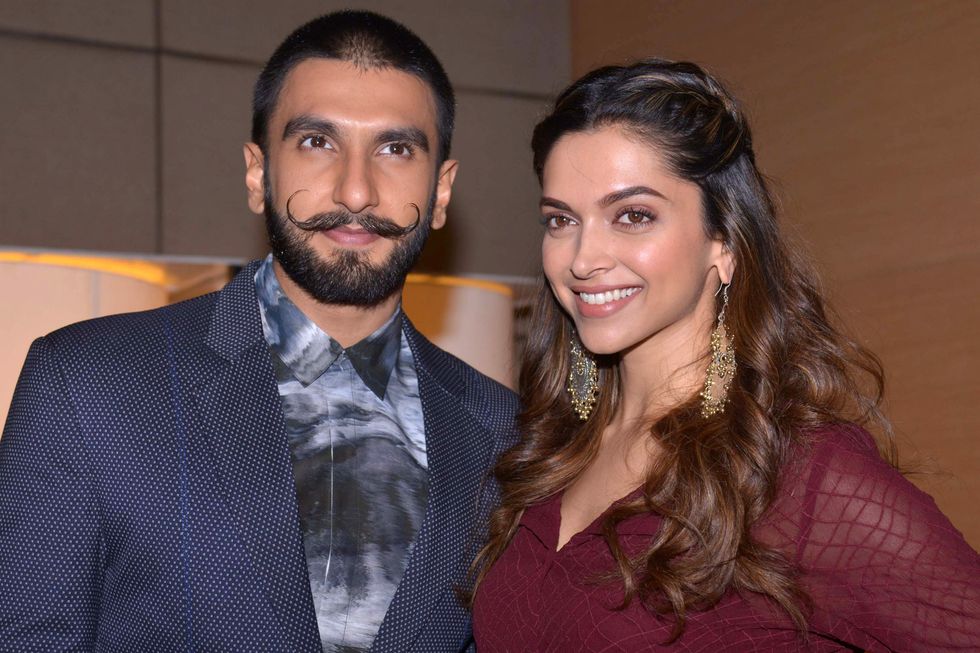After bankrolling unconventional films such as Vicky Donor (2012) and Madras Cafe (2013), actor-producer John Abraham is now bringing Parmanu: The Story Of Pokharan, a film based on a series of nuclear tests which India conducted in 1998 right under the nose of the CIA spy satellites to become a nuclear state. The film has faced a lot of issues in its release, including several delays. Earlier, KriArj Entertainment, a popular moviemaking banner run by Prernaa Arora and Arjun N Kapoor, was the co-producer on the project along with Abraham’s JA Entertainment. However, as the movie drew to its release, KriArj backed out of the project after JA Entertainment dragged them to court over alleged delay in payments and non-payments which delayed the release of the film several times. Recently, our Mumbai correspondent, Mohnish Singh, met John at his office and tried to know more about the film, what made the actor-producer back it and much more.
After facing a lot of hurdles, your film Parmanu: The Story Of Pokhran is finally releasing. How are you feeling right now?
Well, right now, we are feeling very relieved. Usually, at this point of time, we should feel nervous about the reactions to the film, but we have not even reached that stage. We are just very relieved that the film is releasing and we are thankful to the honourable High Court and the honourable judge for exactly putting out a verdict that I was trying to save for so long. So, we are very thankful.
What made you back this project in the first place?
It was a matter of great pride to tell a story such as this. The story, I feel, that everybody should know but doesn’t know the details about. Lot of us only know the surface information about what happened in India but we don’t know the details, we don’t know the obstacles they faced, we don’t know that how the CIA was involved. There was a lot of information I found out only when I was brought for the film and that made me want to tell the story even more.
Does the film revolve around any particular person who was a part of the mission in 1998?
In this film, there are 6 characters but there are no heroes in it, the story of the film in itself is a hero. The hero is the screenplay, the hero is the dialogues, the hero is the director. So, we were clear as to how we wanted to project this film and all the people who made this mission happen are the heroes of the film. We are very clear about that.
How did this project come to you?
Abhishek Sharma (director) narrated the idea to me, a 10-page idea. Then I looked at him and he looked at me and I asked that how in 20 years nobody decided to make a film on this? This is one of the biggest events in Indian history. After he narrated the idea to me, I thought that it’s a very difficult film and then I thought how will I pull it off? After that, I smiled and said ‘I will do it’ because it’s so difficult that I would want to do it.
How was it to work with the cast and crew of Parmanu?
Wonderful! All credit to Abhishek and the entire team. And honestly, to Diana first of all for doing this and the entire cast to making this in record time. We finished two days ahead of schedule. So not only we pulled it off, we pulled it off in record time.
What are the key points to keep in mind when a filmmaker sets out to make a true-event-based film?
Parmanu is based on a true story. The key point to keep in mind is the research. We have to do the research right; you can’t rest with research. Then the most important is the plot of the film, you can’t mess with that. Our plot is 85% to 90% accurate, we fictionalised certain characters. We obviously could not use real names, we had to change them. Other than that, the only fictional character was my character because you have to tell the story from someone’s shoulder. When you see the film at the end if you wait for the end credits, then you will realize how accurate we were.
How were the facts of the event translated for silver screen adaptation?
Because there is so much information in the film, and this is for all to know, we have to establish that information with our audience first, so the first 20-25 minutes (of the film) were concentrated on establishing that. The director did a fantastic job by simplifying that information. Meaning, not only you and me, but the guy serving me tea should also know what happened. How did it happen? That is very important.
Do you think it’s fair to blame directors if the film does not go well?
There are so many elements and aspects of filmmaking; there is promotion for example. If the film is not well promoted, I feel that’s like a huge negative because a lot of people aren’t even aware of it, or how you distribute the film. If you ask me, I think you can have the best set-up ever but if your story is not on point, intriguing and revealing enough, it doesn’t matter because you can’t really fool the audience.
Do you think it’s really important to promote a film even if you have a strong content?
I think you have to be smart at promoting the film, you have to understand what you really need to push. If you want to give the film a digital push, you want it to go all out to different malls or if you want to go for 50,000 different shows. The answer is a yes and a no depending on the genre. If I was doing Welcome Back (2015) I would go out and do all the shows but if I was doing Parmanu, I will stick to a different kind of marketing positioning. This film is a word-of-mouth film but that’s not enough. For a word-of-mouth film, you have to go up from a certain benchmark and to reach that benchmark on a Friday, you have to work hard through marketing.
How come John Abraham as a producer backs a different type of cinema, but when it comes to John, the actor, he stars in completely different kinds of films altogether?
Very honestly, if you ask me my favourite genre, it is comedy. I love comedy and I love films like Welcome Back because I love making people laugh. For me, the biggest high is when people laugh. As a producer am I equipped to do a full-on comedy at this point? I haven’t chanced upon a script yet so I don’t know. I think differently as a producer but as an actor people love to see me in a certain way. That is why I try and balance both out.
Parmanu: The Story Of Pokhran releases today.




 Beets, bears, and brilliant chaos—Dwight Schrute was ready to make Schrute Farms the weirdest B&B on TVGetty Images
Beets, bears, and brilliant chaos—Dwight Schrute was ready to make Schrute Farms the weirdest B&B on TVGetty Images  Too fabulous to function—Jean-Ralphio was born to star in his own disaster-fuelled comedyGetty Images
Too fabulous to function—Jean-Ralphio was born to star in his own disaster-fuelled comedyGetty Images  Omar - a prequel about his early days could’ve been HBO’s next gritty masterpieceGetty Images
Omar - a prequel about his early days could’ve been HBO’s next gritty masterpieceGetty Images Deadpan, dark, and delightful—April Ludgate’s FBI spin-off would’ve been everythingGetty Images
Deadpan, dark, and delightful—April Ludgate’s FBI spin-off would’ve been everythingGetty Images Sassy, spiritual, and full of secrets—Lafayette’s backstory was screaming for a supernatural seriesGetty Images
Sassy, spiritual, and full of secrets—Lafayette’s backstory was screaming for a supernatural seriesGetty Images From Victorian poetry to vampire slaying, Spike’s centuries-long saga deserved its own spotlightGetty Images
From Victorian poetry to vampire slaying, Spike’s centuries-long saga deserved its own spotlightGetty Images Confidence, quirks, and questionable fashion—Schmidt’s next chapter could’ve been rom-com goldGetty Images
Confidence, quirks, and questionable fashion—Schmidt’s next chapter could’ve been rom-com goldGetty Images The villain we hated to love—Negan did get his spin-off, and it’s a bloody good oneGetty Images
The villain we hated to love—Negan did get his spin-off, and it’s a bloody good oneGetty Images Whimsical and wise—Luna’s magical adventures would’ve been a dreamy, otherworldly delightGetty Images
Whimsical and wise—Luna’s magical adventures would’ve been a dreamy, otherworldly delightGetty Images Chaotic queen energy—Gina’s influencer-era spin-off would’ve broken the internetGetty Images
Chaotic queen energy—Gina’s influencer-era spin-off would’ve broken the internetGetty Images 










 Drama unfolds as Cardi B calls out Offset for an affair with AriTheDon in explosive leaked messagesGetty Images
Drama unfolds as Cardi B calls out Offset for an affair with AriTheDon in explosive leaked messagesGetty Images 
 Deepika Padukone and Ranveer Singh’s stunning £9.5 million sea-facing apartment in Mumbai nears completionGetty Images
Deepika Padukone and Ranveer Singh’s stunning £9.5 million sea-facing apartment in Mumbai nears completionGetty Images 

 And the magician kisses a king cobra
And the magician kisses a king cobra